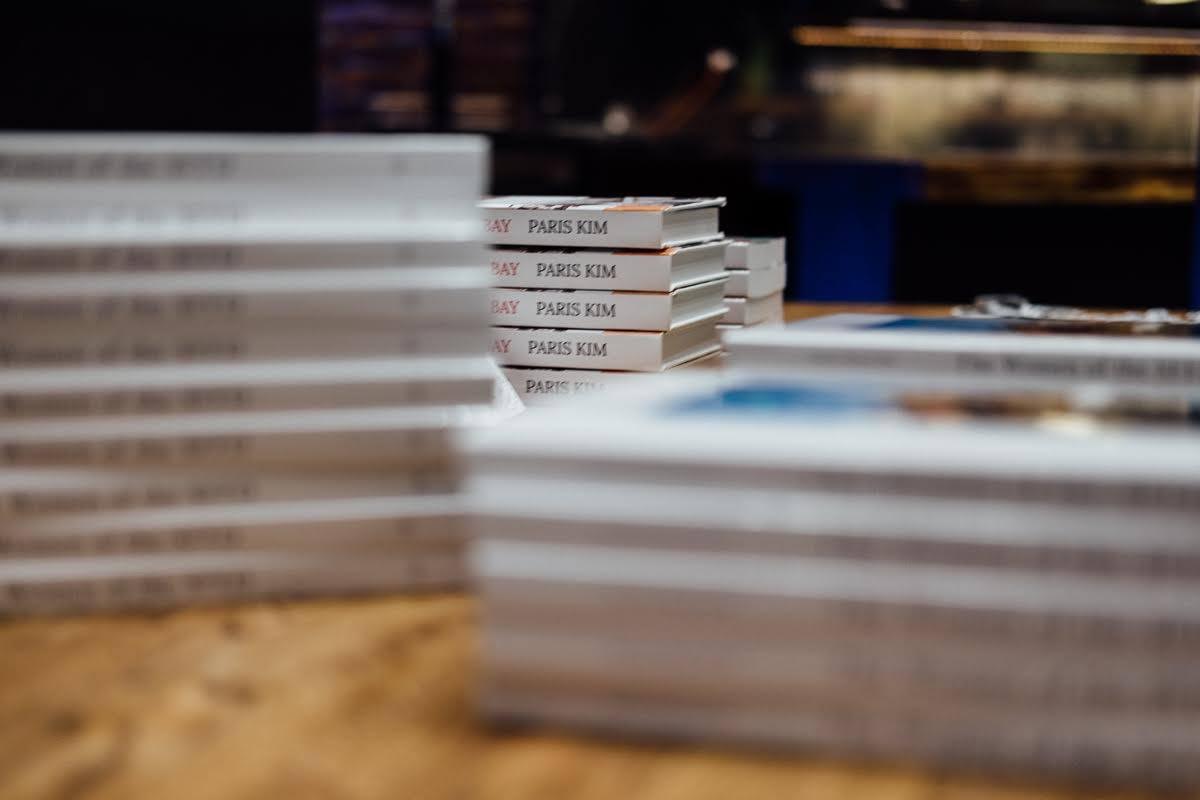Name: Paris Kim
Age: 26
College & Majors/Minors: B.A. in English, concentration in Creative Writing
Current Location: San Francisco, CA
Current Form of Employment: Content Management for Wish, Editor-in-Chief of Marjorie Magazine
Where do you work and what is your current position?
I currently work in content management for the Ecommerce app Wish, a growing shopping platform with over 150 million worldwide users. I am also the founder and Editor-in-Chief of Marjorie Magazine, a vintage lifestyle magazine coming onto its third print issue this spring.
Tell us about how you found your first job, and how you found your current job (if different).
My first job was a lucky break after just graduating from the University of San Francisco. I spent all summer indulging myself in creative DIY projects with designing notebook covers and typewriting my own prose, and it was put to great use during my time as a creative workshop captain for Paper Source's Fillmore Street location. All of us who worked there even got to design and display our own greeting cards made in-house, and shoppers were always asking about them. A year after working for Paper Source, I wanted to move up into the field of marketing, where I landed an internship with a small web interface startup called myWebRoom. Six months after writing copy for their products and their blog, I was approached by my current company, Wish, to help build and moderate the content on the app as well as launch and moderate their social media.
Having worked in San Francisco and surrounded by tech-talk for four years now, that is when I decided to create in March 2017 my own online publication and print magazine, Marjorie, devoted to vintage lifestyle in the modern world. I love vintage, from fashion to music and design, and naturally I wanted to find an outlet to write about these passions while connect with other like-minded creatives. When there was none to be found, besides small niche communities on Facebook and Instagram, I realized that I had to make it myself.
What was another writing-related job that was important in your career?
Freelancing in between my time at Paper Source and myWebRoom really helped propel me into the right direction in terms of what I wanted to achieve with my writing. Simply looking for opportunities on Craigslist opened doors into what sort of writing jobs were out there and which ones made the most sense for my style and background.
For a time, I also branched out to open mics across San Francisco and connected with poets to share my old typewritten prose, to which I realized that was not for me. I also found out about the incredible world of self publishing and began to publish my own books via Blurb featuring my poetry and personal essays. I still use Blurb to this day for Marjorie. It's a great start to building your portfolio and learning design, or just getting your work out there; you don't have to wait around for the big publishers at Penguin or The New Yorker to deem your book readable—if you have a story and you put social media and your networking to use, you're always guaranteed devoted readers, no matter how big or small, that will want to read, that will want to buy and invest in your talent.
What did you do in college to prepare for your post-grad life?
I landed an exciting opportunity to intern for McSweeney's, reading submissions and fact-checking articles for their sister publication The Believer, while also volunteering as a tutor for grade-school students over at 826 Valencia. The interns even had monthly meet-ups with Dave Eggers himself—it was quite surreal! I was given the chance to pitch my own stories for both McSweeney's and The Believer, for the latter actually being commissioned to interview my favorite band, The Airborne Toxic Event, who happened to be in town that spring. Even though the editors ultimately passed on the final piece, they were helpful in providing alternative places to get it published and even referred me over to editors at The Rumpus. All of the ups and downs in my internship and college years spent as an English major were documented in my personal blog at the time, Paris Kim Writes.
What is your advice for students and graduates with an English degree?
My advice is simply to put your passions to paper, write it out, whatever IT is. A small idea, random words, just as long as you're still devoted to your words and ideas and never lose sight of these things that make you unique as an English major. And take charge of your resources. In just a few years from my Craigslist-surfing days I discovered a multitude of places to connect with other writers and find new opportunities for work. There's Shut Up and Write on Meetup, which are weekly sit-ins with other local writers at a cafe or elsewhere to just sit together and write; there's plenty of Facebook groups advertising freelance work and great media to apply to and get feedback; and of course, there's always open mics, for you never know who might be lurking in those crowds. The support is there, and I've listed a few, and it's there for you to take and know confidently that there is always something exciting waiting for you and your work on the horizon!
***
Links:
- Marjorie Magazine: marjoriemagazine.com
- Print publications of Marjorie: blurb.com/b/8048276-marjorie-magazine; www.blurb.com/b/8253300-marjorie-magazine-fall-winter-2017
- My interview with the band The Airborne Toxic Event: oneweekoneband.tumblr.com/tagged/the_airborne_toxic_event/chrono
- My essay "Unseen" on Harness Magazine: harnessmagazine.com/unseen-car-crash-taught-people/
- Instagram: @ParisKimWrites









































































